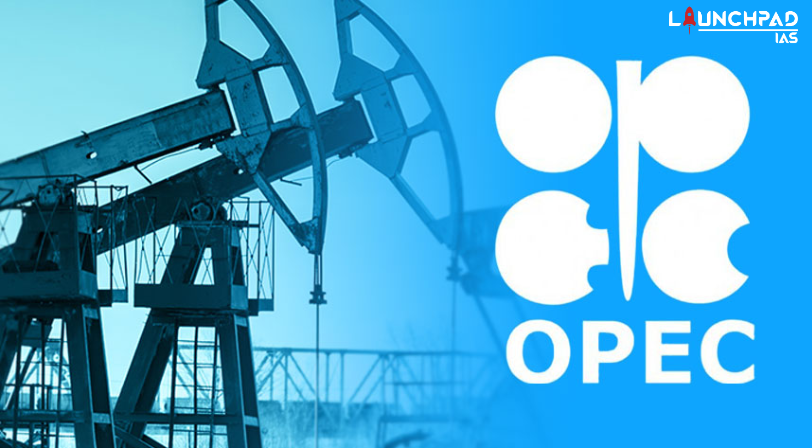- The OPEC (Organization of the Petroleum Exporting Countries) is a permanent, intergovernmental organization.
- Created at the Baghdad Conference in 1960, by Iran, Iraq, Kuwait, Saudi Arabia, and Venezuela.
Objective
- It aims to manage the supply of oil to set the price of oil in the world market, to avoid fluctuations that might affect the economies of both producing and purchasing countries.
- It is headquartered in Vienna, Austria.
- Its membership is open to any country that is a substantial exporter of oil and which shares the ideals of the organization.
- As of 2019, it has a total of 14 Member Countries viz. Iran, Iraq, Kuwait, United Arab Emirates(UAE), Saudi Arabia, Algeria, Libya, Nigeria, Gabon, Equatorial Guinea, the Republic of Congo, Angola, Ecuador, and Venezuela.
- OPEC nations produce about 30% of the world’s crude oil.
- Saudi Arabia is the biggest single oil supplier within the group, producing more than 10 million barrels a day.
Concept of Asian Premium
The “Asian premium” is a policy implemented by the Organization of the Petroleum Exporting Countries where they charge higher prices for oil exports to Asian countries compared to what they charge Western countries.
This policy has been in place for several decades, and here are the reasons and the background behind it:
- Market Dynamics and Demand:
- High Demand: Asian countries, including India and China, have high energy demands due to their large populations and rapidly growing economies.
- Limited Alternatives: Asian countries historically had fewer alternative sources of oil, making them more dependent on OPEC supplies.
- Geopolitical Factors:
- Long-Term Contracts: Asian countries often entered into long-term contracts with OPEC nations, which included the Asian premium as a part of the pricing mechanism.
- Western Influence: Western countries, particularly the US, have had a significant influence on Middle Eastern oil-producing countries, which helped them secure oil at lower prices.
- Transportation and Shipping:
- Distance: Asian countries are generally farther away from the Middle Eastern oil-producing countries compared to European nations, leading to higher transportation costs.
- Historical Context:
- Established Practice: The Asian premium has been a part of the global oil pricing mechanism for a long time, becoming a somewhat established practice.
- Negotiation Power:
- Collective Bargaining: Western countries have often negotiated oil prices collectively, giving them more bargaining power compared to individual Asian nations.
OPEC+
- The non-OPEC countries that export crude oil are termed OPEC-plus countries.
- OPEC+ now includes the 13 OPEC member countries along with Azerbaijan, Bahrain, Brunei, Kazakhstan, Malaysia, Mexico, Oman, Russia, South Sudan, and Sudan.
- OPEC+ countries produce about 40% of all the world’s crude oil.


